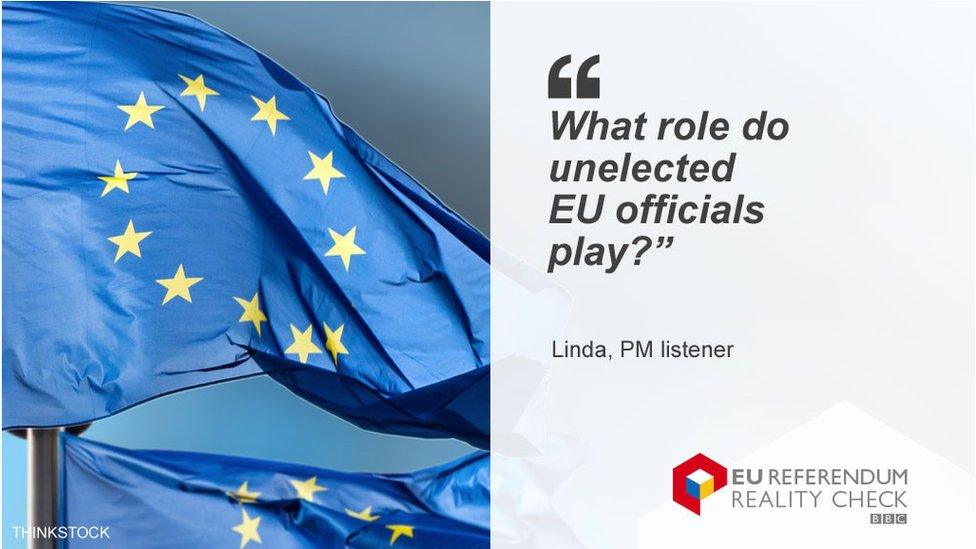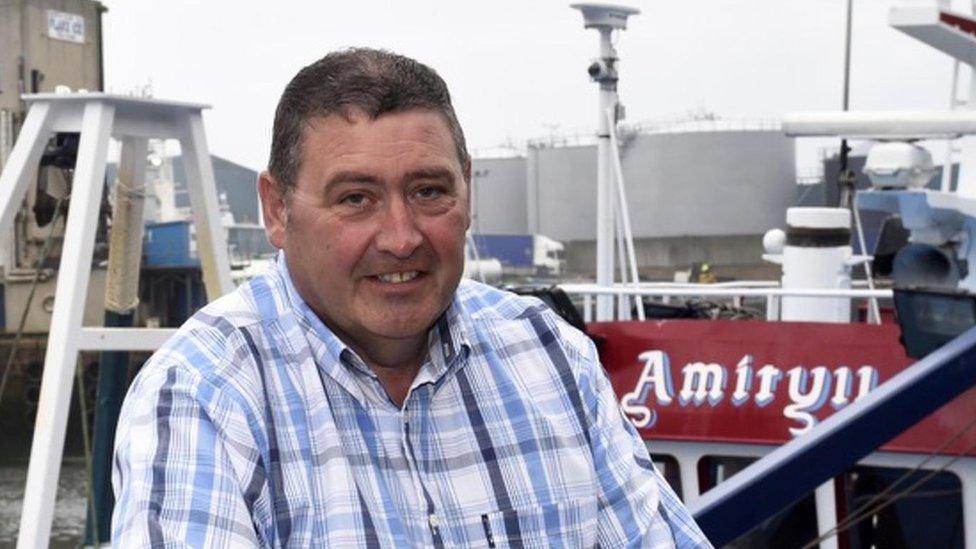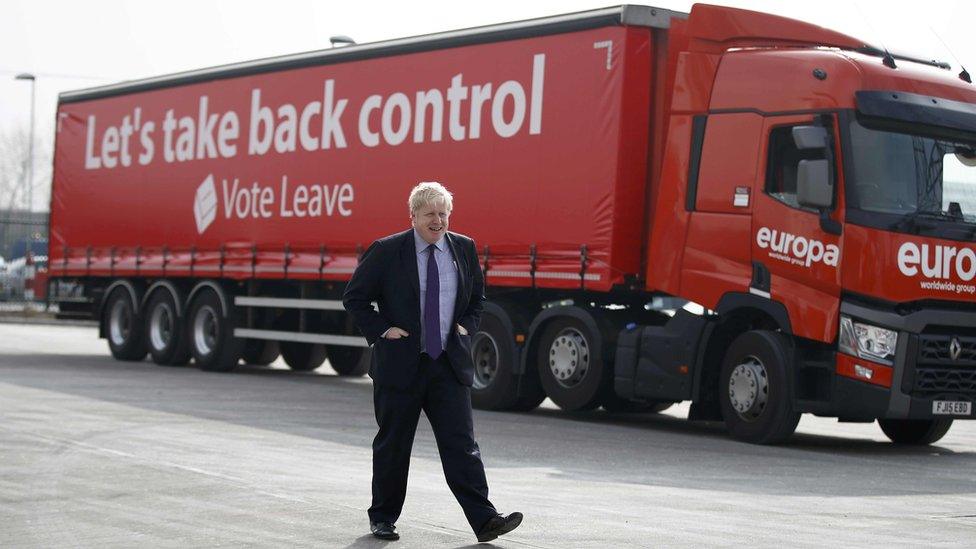Reality Check: What role do unelected EU officials play?
- Published

The question: Linda asks BBC Radio 4's PM programme: "We hear about unelected bureaucrats making decisions in the EU. Please could you explain how the role of these EU bureaucrats compares with that of our civil servants, who are also unelected, in supporting the UK government in its decision making. Also, how are these bureaucrats chosen in the UK and EU."
Reality Check verdict: There are a number of different routes to becoming a civil servant in the UK. EU commissioners on the other hand are proposed by national governments and selected by the president of the European Commission. New legislation proposed by the Commission still has to be agreed by the member states and passed by the European Parliament, which is directly elected by EU voters. So it's misleading to say unelected bureaucrats make decisions in the EU. The 28 European commissioners are meant to carry out their responsibilities independently of their national governments. In that sense, they are similar to British civil servants - politically impartial and independent of the government.
When there is talk about unelected bureaucrats making decisions at the EU, it is usually the European Commission that people have in mind.
The Commission plays a vital role in the EU. It is the body which proposes new legislation, draws up the EU's annual budget and manages and supervises EU funding. The Commission consists of 28 members, one from each member state.
Its president is nominated by the national leaders and then elected by the European Parliament by majority vote. Based on member states' suggestions, the Commission's president selects 27 other members of the Commission for a five-year period, each with a specific policy portfolio.
The European Parliament must approve the Commission as a whole but does not vote on individual commissioners. More importantly, any new legislation proposed by the Commission still has to be agreed by the member states and passed by the European Parliament, which is directly elected by EU voters. The statement of unelected bureaucrats making decisions in the EU is therefore somewhat misleading.
As an institution, the European Commission relies on the work of about 33,000 officials, staff, and special advisers. The UK, by contrast, has more than 400,000 civil servants, according to 2015 figures from the Office for National Statistics.
The British government states that "the civil service helps the government of the day develop and implement its policies". In this sense, the work of British civil servants is comparable to that of the staff of the European Commission. Unlike appointed ministers heading government departments in the UK, the 28 European commissioners are meant to carry out their responsibilities independently of their national governments, acting only in the general interest of the union. In that sense, they are similar to British civil servants - politically impartial and independent of the government.
At the EU, the European Personnel Selection Office (EPSO) is responsible for selecting staff for the Commission and all other EU institutions. Depending on the specific role, application procedures are often based on a series of stringent tests and assessments. In the UK, there are different routes to becoming a civil servant, from moving directly to a civil service job, to entering the competitive civil service fast stream programme for graduates.



- Published13 May 2016

- Published4 May 2016

- Published7 March 2016

- Published9 May 2016

- Published22 February 2016
